Index relies entirely on the support of donors and readers to do its work.
Help us keep amplifying censored voices today.
[vc_row][vc_column][vc_column_text]
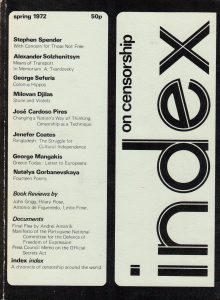
The first issue of Index on Censorship magazine, in March 1972.
You may have heard that the 70s were different. In 1972, when the first issue of Index magazine was launched, no one knew that 20 years later there would be an influential economic bloc called the European Union. The Beatles’ had only just split. The World Trade Center in New York was being built, while Sir Edward Heath was the prime minister of the United Kingdom.
Fifty years on and some things remain. Queen Elizabeth’s reign goes on and celebrates its 70th anniversary in 2022. Dictatorships and censorship, which should be trapped in history books, continue to torment the lives of many. And as a result, Index on Censorship remains vigilant, defending freedom of expression and giving voice to those who are silenced.
As we celebrate our 50th anniversary, we go back in time and remember the remarkable events that happened in 1972.[/vc_column_text][vc_custom_heading text=”1″][vc_column_text]January 30th: British soldiers shoot 26 unarmed civilians during a protest in Derry, Northern Ireland. Fourteen people were killed on this day known as “Bloody Sunday”. [/vc_column_text][vc_custom_heading text=”2″][vc_column_text]February 1st: Paul McCartney and the Wings release “Give Ireland back to the Irish” in the UK. It would be banned by the BBC, nine days later. [/vc_column_text][vc_custom_heading text=”3″][vc_column_text]February 5th: Airlines in the United States begin to inspect passengers and baggage. Tough to imagine that people traveled without any surveillance. [/vc_column_text][vc_custom_heading text=”4″][vc_column_text]February 17th: British Parliament votes to join the European Common Market. In 2020, the United Kingdom would leave the European Union. [/vc_column_text][vc_custom_heading text=”5″][vc_column_text]February 21st: Richard Nixon becomes the first US president to visit China, seeking to establish positive relations in a meeting with Chinese leader Mao Zedong, in Beijing.
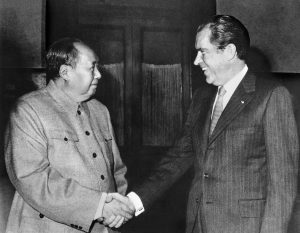
Mao Zedong and Richard Nixon during Nixon’s historical visit to China in 1972. Photo: Ian Dagnall/Alamy
[/vc_column_text][vc_custom_heading text=”6″][vc_column_text]March 15th: The Godfather, starring Marlon Brando and Al Pacino, premieres in New York. It wins Best Picture and Best Actor (Brando) at the 45th Academy Awards.
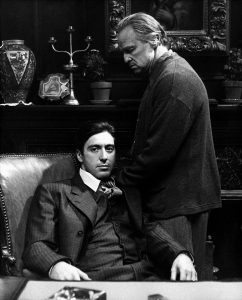
Al Pacino and Marlon Brando in the Godfather. The first film of one the most successful franchises of all time was released in 1972. Photo: All Star Library/Alamy
[/vc_column_text][vc_custom_heading text=”7″][vc_column_text]June 18th: British European Airways Trident crashes after takeoff from Heathrow to Brussels, killing all 118 people on board. [/vc_column_text][vc_custom_heading text=”8″][vc_column_text]July 1st: Feminist magazine Ms, founded by Gloria Steinem, publishes its first issue, with Wonder Woman on the cover.[/vc_column_text][vc_custom_heading text=”9″][vc_column_text]August 4th: Uganda dictator Idi Amin orders the expulsion of 50,000 Asians with British passports.
[/vc_column_text][vc_custom_heading text=”10″][vc_column_text]September 4th and 5th: 11 members of the Israeli Olympic team are murdered by a Palestinian terrorist group in the second week of the 1972 Olympics in Munich.[/vc_column_text][vc_custom_heading text=”11″][vc_column_text]September 21st: Philippines President Ferdinand Marcos declares martial law. In 2022, his son Ferdinand ‘Bongbong’ Marcos is running for president. [/vc_column_text][vc_custom_heading text=”12″][vc_column_text]October 13th: A flight from Uruguay to Chile crashes in the Andes Mountains. Passengers eat the flesh of the deceased to survive. Sixteen people are rescued two months later.[/vc_column_text][vc_custom_heading text=”13″][vc_column_text]November 30th: BBC bans “Hi, Hi, Hi”, by Paul McCartney and The Wings, due to its drug references and suggestive sexual content. [/vc_column_text][vc_custom_heading text=”14″][vc_column_text]December 7th: Apollo 17 is launched and the crew takes the famous “blue marble” photo of the entire Earth.
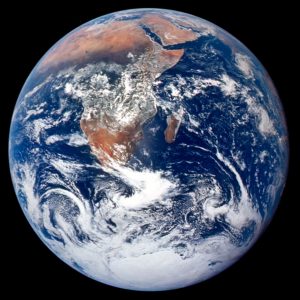
The earth seen from the Apollo 17 spacecraft. Photo: NASA/Alamy
[/vc_column_text][vc_custom_heading text=”15″][vc_column_text]December 28th: Kim Il-Sung takes over as president of North Korea. He’s the grandfather of the country’s current leader, Kim Jong-un. [/vc_column_text][vc_custom_heading text=”16″][vc_column_text]December 30th: US President Richard Nixon halts bombing of North Vietnam and announces peace talks in Paris, to be held in January 1973. [/vc_column_text][/vc_column][/vc_row]
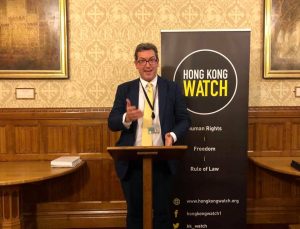
Hong Kong Watch’s Benedict Rogers. Credit: Hong Kong Watch
Benedict Rogers was surprised when he heard that he’d been accused by police in Hong Kong of jeopardising China’s national security and threatened with jail time under the draconian National Security Law. The chief executive of Hong Kong Watch, a charity that campaigns for human rights in the former British colony, told Index that while he knew there was an extra-territorial element to the law, he didn’t believe “they’d go this far”.
Three weeks ago Rogers learnt that the website attached to Hong Kong Watch had been blocked in Hong Kong. After making enquiries about why he received letters back charging him under the law.
“I guess the letters I received were an answer to the inquiry,” he said.
Passed in the summer of 2020, the National Security Law caused global outcry in its implications for freedoms in Hong Kong as it effectively made any form of dissent illegal. But it was not just the punishment for dissent within its borders that caused alarm – even those outside Chinese territory could be charged with breaking it. Index wrote about the law at the time, calling it a “devastating blow to Hong Kong’s autonomy”.
Approaching two years since its passage, scores of arrests and prison sentences have been handed out to protesters and journalists in Hong Kong. This though is the first time the law has been used against an advocacy group outside of Hong Kong.
Rogers is a British human rights activist and journalist based in London. In addition to his work at Hong Kong Watch, he is co-founder and deputy chairman of the Conservative Party’s human rights commission, a member of the advisory group of the Inter-Parliamentary Alliance on China and an advisor to the World Uyghur Congress.
The action is a clear attempt by Beijing to make anyone, anywhere feel vulnerable. They want to reinforce the message that no corner of the globe is beyond their reach, something we have been reporting on recently in our series Banned by Beijing. That it comes on the back of the Hong Kong Watch website being shut down is another worrying sign that Beijing is trying to shape Hong Kong – which does not have a Great Firewall – in its own image.
Rogers says he is not concerned for his own safety and that he has already taken measures to protect those he does communicate with inside Hong Kong, measures that he will take even further now. He sees it as another “sad deterioration in the Hong Kong situation”.
Today our fears lie with all those who want to promote respect for free speech and human rights within China and Hong Kong and might not do so following this message. People in Hong Kong itself already live with the daily fear of repercussions as they see more and more of their friends, relatives and associates being arrested and jailed. We don’t want this fear to infect those outside, to stop them honestly reporting on the situation and communicating with those inside. We need a united front to campaign against Beijing’s actions.
We are also fearful for those in other authoritarian countries around the world. The move comes less than a fortnight after Russia passed its “fake news” law to imprison anyone inside Russia criticising the war in Ukraine. Putin passed this law overnight. We fear he could look to Beijing and decide to extend it to critical voices outside the country, who are playing such a crucial role in revealing the horrors of Ukraine and holding him to account.
Echoing our concerns, Lord Patten of Barnes, the last British Governor of Hong Kong and a patron of Hong Kong Watch, said:
“This is another disgraceful example of Mr Putin’s friends in Beijing and their quislings in Hong Kong trying not only to stamp out freedom of expression and information in Hong Kong but also to internationalise their campaign against evidence, freedom and honesty.”
UK Foreign Secretary Liz Truss has called it “unjustifiable”.
“Attempting to silence voices globally that speak up for freedom and democracy is unacceptable and will never succeed,” she said.
Rogers, who spoke to Index in 2017 about threatening letters he received from Hong Kong to his London home (also sent to his neighbours’), says the last four to five years has seen a succession of threats including letters and emails, with this action being the latest and most extreme. Still, he says he will not let this attack silence him.
“We’re not going to take the website down. We’re needed more than ever,” he told Index.
In October 1999, a crowd gathered outside Buckingham Palace to jeer at Jiang Zemin, then China’s president as he ate dinner inside with Queen Elizabeth. “Free Tibet!” and “Nazi China,” they shouted. For Jiang, who was known to be sensitive to criticism (he had earlier told Swiss lawmakers that they had “lost a good friend” after they declined to quash similar protests) it was surely an uncomfortable moment. It was also a sign of a robust democratic principle: the right to peaceful assembly and protest.
I lived in Guangzhou at the time and watched coverage of Jiang’s UK visit on Hong Kong terrestrial TV, beamed from across the border about 130km away. But at just the point where cameras panned over the protestors and their placards, the screen was abruptly replaced with a test card. I later learned that beetle-browed apparatchiks spent their days waiting to pounce on any broadcast that offended mainland sensibilities. Like the Stalinist cult of Soviet Russia, China could not endure the friction of free expression.
Censorship this crude can be grimly funny. Blanking TV screens is an electronic update of photographic ‘retouching’, when Soviet bureaucrats diligently scratched out images of political figures who had been purged or executed by the regime of Joseph Stalin. In the late 1980s, British television producers hired voice actors to precisely mimic Sinn Fein politicians in a creative attempt to work around a government ban on terrorist spokespersons. But it was hard to find much humor in China’s didactic prohibitions, except for the unintentional kind.
I taught at the Guangdong University of Technology until 2000. In the evenings I would traipse to the university internet centre, a crowded room full of battered old computers to send emails home. Large signs on the wall warned against browsing for anything to do with politics, religion or sex. In the classroom I was also instructed to avoid those taboos. It was made known to me that a cadre from the Communist Party was in the classroom ready to flee to the dean should I break the rules, for which I would be fired and sent home.
The state graduated from these primitive attempts to restrict internet searches to erecting the Great Chinese Internet Firewall, one of the world’s most sophisticated systems of online censorship. YouTube and Facebook were banned in 2009, later Google, Dropbox and Wikipedia. Foreign newspapers (including my own – The Economist and The Independent) and the New York Times have been repeatedly blocked, domestic journalists imprisoned, foreign journalists intimidated or kicked out.
One of the bleakest developments of the last decade has been watching the dead-hand of this official repression seep into Hong Kong. The province was hardly paradise – crowded, venal and with eye-popping disparities in wealth. Nevertheless, its cinemas, newspapers and bookstores did not live in fear of being gagged or shut down. One of the first books I bought there was The Private Life of Chairman Mao, a memoir by Mao’s doctor Li Zhisui, which chronicles, among other things, the Chinese leader’s alleged fondness for sex with young girls.
Long before the National Security Law (NSL) dropped like a dirty bomb in the summer of 2020, bookstores and public libraries were removing critical titles about Mao, history, the 1989 Tiananmen Massacre and the democracy movement. The closures last year of the anti-communist Apple Daily, Hong Kong’s largest-selling newspaper, and online website Stand, which scrubbed all its old articles, are only the tallest trees to be toppled by the law.
Programmes have been cancelled and reporters sacked, moved or banned from covering press events. Foreign journalists, such as Aaron McNicholas, a former Bloomberg reporter from the same Irish town as myself (Clones) have had their visa applications rejected (he was forced to return home in September 2020). Radio Television Hong Kong (RTHK), the public service station I used to watch while in Guangdong, has pulled back from interviews and removed archives that might trigger the censors.
Self-censorship is the worst kind, said the Czech-born movie director Milos Forman, because it twists spines, destroys character and turns us into hypocrites. It’s also the “goal” of all repressive regimes, said one Hong Kong-based journalist. “You start to question yourself whether that story you’re researching is still doable in light of the NSL,” said the journalist who requested anonymity. “They can slice and dice that law in whatever way they wish, and if you cross the line, you can be arrested and denied bail.”
More reporters are getting the message. In the last month, over half a dozen have reportedly quit the newsroom of The South China Morning Post, once one of the crowns in Rupert Murdoch’s empire, now owned by Alibaba, a Chinese internet company run by billionaire Jack Ma. Ma disappeared from public view for three months in November 2020 after he criticised the country’s creaking financial system. Many will have surely heeded the lesson: if China’s richest man can be brought to heel, who cannot.
Hong Kong’s chief executive, Carrie Lam, has punctuated this historic assault on a first-world media with a series of surreal statements denying it is happening. In January, she said her government did “not seek to crack down on press freedom.” Last year, in a Trumpian touch, she said her government was the “worst victim” of fake news, the prelude to what many fear will be more legislation targeting the internet.
As the scale of the government’s ambitions to throttle free expression became clear, Lam insisted that journalists were safe – as long as they obeyed the security law. Of course, as media watchdog Reporters Without Borders noted, the scope of the four new offences that can be wielded against journalists – secession, subversion, terrorism and collusion with foreign powers – is so “deliberately vague and catch-all” as to make all but government stenography a dangerous proposition (life imprisonment is the mandated punishment).
Beyond the silenced reporters, activists and politicians, various sectors of Hong Kong society, such as unions, are “quietly shutting down”, said the anonymous journalist, citing “fear of repercussions”.
“That bedrock of civil society is slowly – actually quickly – being eroded,” he said.
One of the last public memorials to the Tiananmen incident – a statue of piled-up corpses to commemorate those killed – was removed from the University of Hong Kong in December. “Hong Kong has now become a place where those who speak out against such draconian measures await the midnight knock,” writes Michael C Davis, a professor of law at the university until 2016.
David Law, who also taught at the university but who recently left Hong Kong, says the removal of the ‘pillar of shame’ was a shock. “It isn’t necessarily the most telling event but it is the most visible, something that people saw and remember and can relate to as a common point of reference – literally a landmark,” he says. “It has been valuable for getting people to literally see what is happening. Symbols do that.”
I was last in Hong Kong in 2013, on a book tour, giving a couple of talks on the Fukushima nuclear accident that had occurred two years previously. I had been invited by activists campaigning for the closure of the Daya Bay Nuclear Power Plant across the border in Guangdong. I wrote back to them this month as I was researching this article, asking if the new law had affected their activities, but I got no reply. It’s possible they hadn’t received my mail – or that they cannot respond. That’s what happens when everyone is afraid.
Pondering all this over the last week, I recalled gleefully smuggling my Mao book back across the border in late 1999 and debating with my wife whether to teach it in journalism class, which I eventually did.
I’d love to frame this decision, which broached two of three of the university’s banned topics, as a daring jab at the censors, or a pedagogic exercise in challenging perspectives – but I was mostly curious about the reaction of my students. They had been taught a precise formulation on Mao’s rule – 70% good, 30% bad – a calculation that included nothing about his sexual proclivities. In the end, one or two were furious at this new information but if the dean got wind of it, I never heard. Perhaps the university was short of teachers.
Or perhaps the students knew already. One of the surprises of being in China was the knowing cynicism and dry humour that peppered chats about the country’s rulers. It would be good to be able to talk again to my now middle-aged students about how such cynicism finds expression in the age of Xi Jinping. As we know, attempts to use online euphemisms and code, such as images of Winnie the Pooh to lampoon the tubby tyrant have been squashed, proving again that despotism and humorlessness are natural partners, and, as British contrarian Christopher Hitchens once said, censorship inevitably degenerates into absurdity and corruption.
Index is once again partnering with the Human Rights Watch Film Festival. It takes place from 17-25 March and screenings will be both digital and in-person – at the Barbican in London.
In partnership with the festival, we are partnering on the screenings of the following films relating to freedom of expression:
Myanmar Diaries – a film made by a clandestine collective of citizen journalists which documents the human rights abuses and life under military rule in Myanmar. This film is the winner of HRW’s Tony Elliot award for courage in filmmaking.
Eternal Spring – a film which looks at the brave actions of a group of individuals to challenge censorship in China by hijacking the local TV station to combat China’s misinformation campaign against religious practitioners. The film shows the life and death circumstances people have to take to stand up against media censorship.
Boycott – a film which looks at laws in the US that attempt to stifle freedom of speech. In this documentary, one media publication is asked to sign an affadavit claiming they will not boycott products of Israel as a condition of their funding.